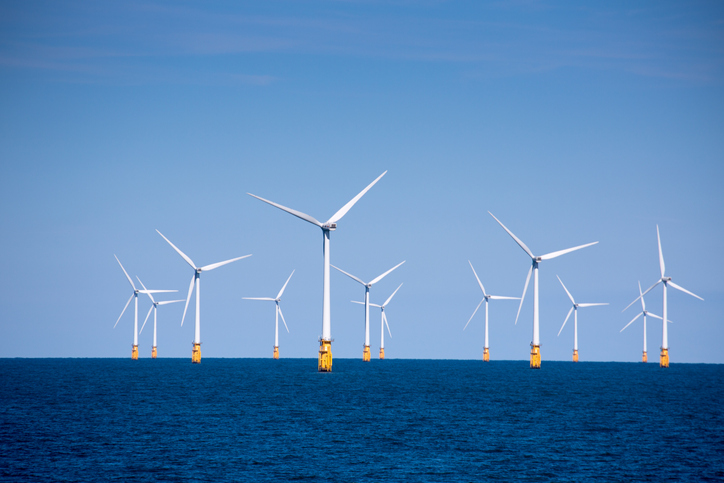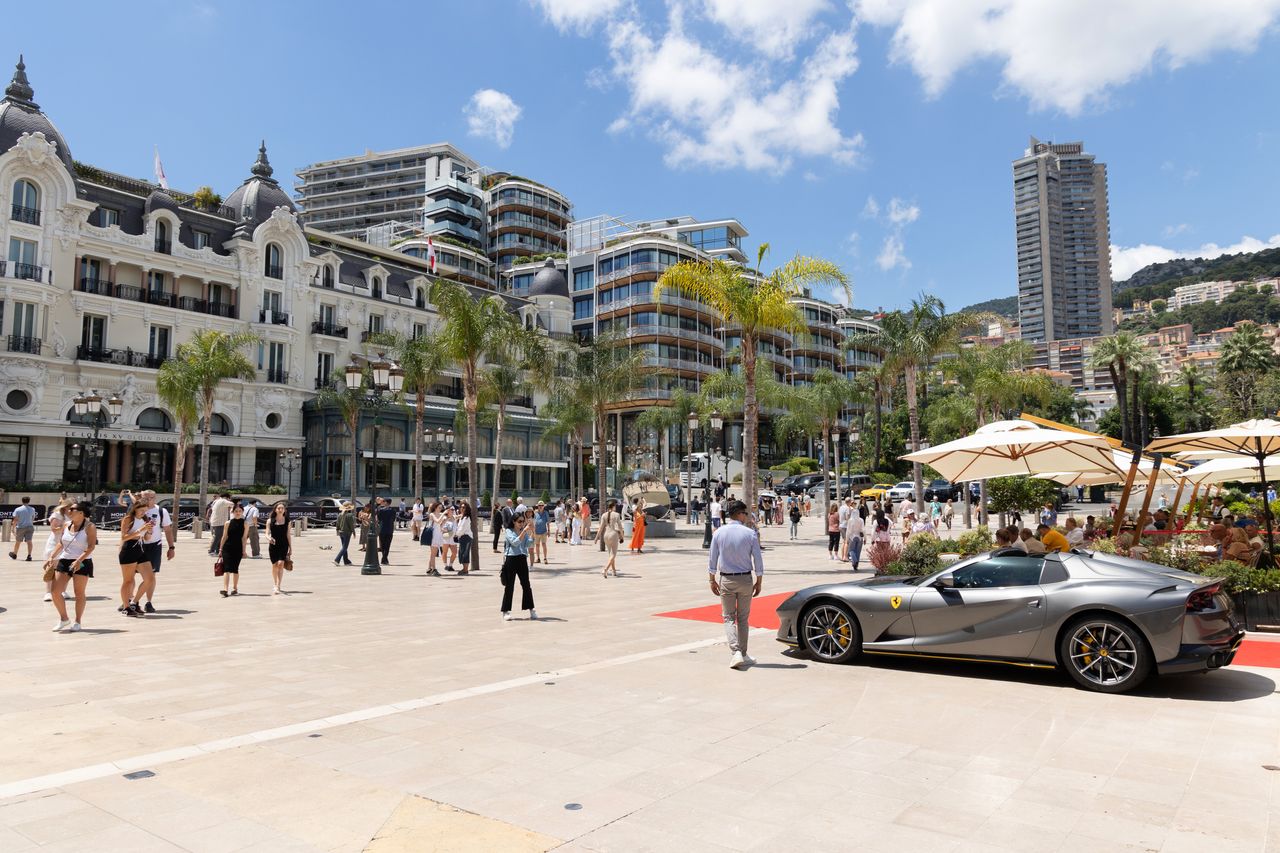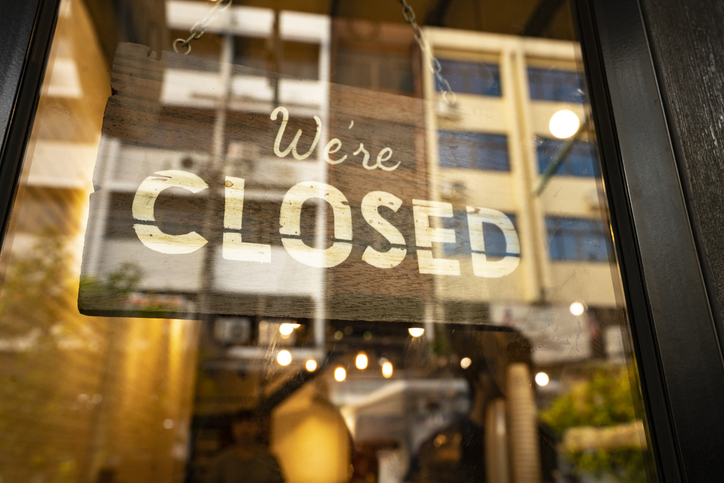Global Emissions From Electricity Set to Fall Even as Power Demand Climbs, IEA Predicts
Starting this year, record generation from renewables and nuclear will cover rising power demand from growth in emerging markets, AI and data centers, the agency says
Global demand for electricity is set to grow at a faster rate over the next three years, but with record power generation from renewables and nuclear expected to cover the surge, emissions will likely go into structural decline, according to the International Energy Agency.
Electricity demand is on track to rise by an average of 3.4% a year through 2026, driven by robust growth in emerging economies, AI, cryptocurrencies and data centres, according to the Paris-based organisation’s latest report. However, global carbon-dioxide emissions from power generation are expected to fall, as low-emission energy sources—wind, solar, hydro and nuclear, among others—are likely to account for almost half of the world’s electricity generation by 2026, up from just under 40% last year.
“It’s encouraging that the rapid growth of renewables and a steady expansion of nuclear power are together on course to match all the increase in global electricity demand over the next three years,” IEA’s executive director Fatih Birol said on Wednesday.
“This is largely thanks to the huge momentum behind renewables, with ever cheaper solar leading the way, and support from the important comeback of nuclear power, whose generation is set to reach a historic high by 2025.”
In 2023, global CO emissions from electricity generation increased by 1%, but the IEA predicts a fall of more than 2% this year and smaller decreases in the next two years. Generation from cleaner energy sources is expected to rise at twice the annual growth rate seen between 2018 and 2023, while coal-fired generation is forecast to fall by an average of 1.7% annually through 2026, the IEA said.
Rapid growth of renewables will be supported by nuclear power. According to the report, nuclear generation is set to rise by roughly 3% a year on average to the end of 2026, despite a number of countries phasing out nuclear power or closing plants early.
France and Japan will restart several plants while new reactors begin operating in Europe, China, India and Korea. Asia will likely remain the main driver of growth, reaching a 30% share of global nuclear generation in 2026, the IEA said.
For years, nuclear power has been at the centre of the clean-energy debate. Proponents including France argue that it is a reliable, low-carbon alternative to fossil fuels, while opponents such as Germany say costs and risks from reactor accidents and waste are too high.
At the United Nations’ COP28 climate summit last year, the U.S. and 21 other nations pledged to triple nuclear power capacity by the middle of the century.
Most of the increase in electricity demand forecast by the IEA is set to come from emerging markets. China is expected to be the largest contributor to growth—with consumption boosted by the production of solar PV modules, electric vehicles and the processing of raw materials—while India is forecast to grow the fastest among major economies.
Rapid expansion of artificial intelligence, data centres and cryptocurrencies will also be a driver of growth, according to the agency, which predicts their power demand could double to roughly the equivalent of electricity consumption in Japan.
Last year, electricity demand growth slowed to 2.2% from 2.4% in 2022, as advanced economies suffered the impact of high inflation and lower industrial output, the IEA said.
Demand in the U.S. decreased by 1.6% after rising 2.6% in 2022, mainly because milder weather reduced the use of heaters and coolers, but demand is expected to recover this year to 2026. European Union power demand declined for the second consecutive year in 2023—despite a fall in energy prices—and isn’t expected to return to high levels until 2026 at the earliest, the IEA said.
 Copyright 2020, Dow Jones & Company, Inc. All Rights Reserved Worldwide. LEARN MORE
Copyright 2020, Dow Jones & Company, Inc. All Rights Reserved Worldwide. LEARN MORE
This stylish family home combines a classic palette and finishes with a flexible floorplan
Just 55 minutes from Sydney, make this your creative getaway located in the majestic Hawkesbury region.
As Paris makes its final preparations for the Olympic games, its residents are busy with their own—packing their suitcases, confirming their reservations, and getting out of town.
Worried about the hordes of crowds and overall chaos the Olympics could bring, Parisians are fleeing the city in droves and inundating resort cities around the country. Hotels and holiday rentals in some of France’s most popular vacation destinations—from the French Riviera in the south to the beaches of Normandy in the north—say they are expecting massive crowds this year in advance of the Olympics. The games will run from July 26-Aug. 1.
“It’s already a major holiday season for us, and beyond that, we have the Olympics,” says Stéphane Personeni, general manager of the Lily of the Valley hotel in Saint Tropez. “People began booking early this year.”
Personeni’s hotel typically has no issues filling its rooms each summer—by May of each year, the luxury hotel typically finds itself completely booked out for the months of July and August. But this year, the 53-room hotel began filling up for summer reservations in February.
“We told our regular guests that everything—hotels, apartments, villas—are going to be hard to find this summer,” Personeni says. His neighbours around Saint Tropez say they’re similarly booked up.
As of March, the online marketplace Gens de Confiance (“Trusted People”), saw a 50% increase in reservations from Parisians seeking vacation rentals outside the capital during the Olympics.
Already, August is a popular vacation time for the French. With a minimum of five weeks of vacation mandated by law, many decide to take the entire month off, renting out villas in beachside destinations for longer periods.
But beyond the typical August travel, the Olympics are having a real impact, says Bertille Marchal, a spokesperson for Gens de Confiance.
“We’ve seen nearly three times more reservations for the dates of the Olympics than the following two weeks,” Marchal says. “The increase is definitely linked to the Olympic Games.”

Getty Images
According to the site, the most sought-out vacation destinations are Morbihan and Loire-Atlantique, a seaside region in the northwest; le Var, a coastal area within the southeast of France along the Côte d’Azur; and the island of Corsica in the Mediterranean.
Meanwhile, the Olympics haven’t necessarily been a boon to foreign tourism in the country. Many tourists who might have otherwise come to France are avoiding it this year in favour of other European capitals. In Paris, demand for stays at high-end hotels has collapsed, with bookings down 50% in July compared to last year, according to UMIH Prestige, which represents hotels charging at least €800 ($865) a night for rooms.
Earlier this year, high-end restaurants and concierges said the Olympics might even be an opportunity to score a hard-get-seat at the city’s fine dining.
In the Occitanie region in southwest France, the overall number of reservations this summer hasn’t changed much from last year, says Vincent Gare, president of the regional tourism committee there.
“But looking further at the numbers, we do see an increase in the clientele coming from the Paris region,” Gare told Le Figaro, noting that the increase in reservations has fallen directly on the dates of the Olympic games.
Michel Barré, a retiree living in Paris’s Le Marais neighbourhood, is one of those opting for the beach rather than the opening ceremony. In January, he booked a stay in Normandy for two weeks.
“Even though it’s a major European capital, Paris is still a small city—it’s a massive effort to host all of these events,” Barré says. “The Olympics are going to be a mess.”
More than anything, he just wants some calm after an event-filled summer in Paris, which just before the Olympics experienced the drama of a snap election called by Macron.
“It’s been a hectic summer here,” he says.

AFP via Getty Images
Parisians—Barré included—feel that the city, by over-catering to its tourists, is driving out many residents.
Parts of the Seine—usually one of the most popular summertime hangout spots —have been closed off for weeks as the city installs bleachers and Olympics signage. In certain neighbourhoods, residents will need to scan a QR code with police to access their own apartments. And from the Olympics to Sept. 8, Paris is nearly doubling the price of transit tickets from €2.15 to €4 per ride.
The city’s clear willingness to capitalise on its tourists has motivated some residents to do the same. In March, the number of active Airbnb listings in Paris reached an all-time high as hosts rushed to list their apartments. Listings grew 40% from the same time last year, according to the company.
With their regular clients taking off, Parisian restaurants and merchants are complaining that business is down.
“Are there any Parisians left in Paris?” Alaine Fontaine, president of the restaurant industry association, told the radio station Franceinfo on Sunday. “For the last three weeks, there haven’t been any here.”
Still, for all the talk of those leaving, there are plenty who have decided to stick around.
Jay Swanson, an American expat and YouTuber, can’t imagine leaving during the Olympics—he secured his tickets to see ping pong and volleyball last year. He’s also less concerned about the crowds and road closures than others, having just put together a series of videos explaining how to navigate Paris during the games.
“It’s been 100 years since the Games came to Paris; when else will we get a chance to host the world like this?” Swanson says. “So many Parisians are leaving and tourism is down, so not only will it be quiet but the only people left will be here for a party.”
This stylish family home combines a classic palette and finishes with a flexible floorplan
Just 55 minutes from Sydney, make this your creative getaway located in the majestic Hawkesbury region.






















